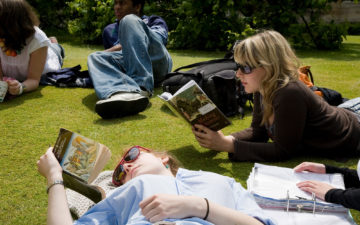 Roosevelt Montás over at Aeon:
Roosevelt Montás over at Aeon:
As a high-school student with still-shaky English proficiency, I found a collection of Plato’s dialogues in a garbage pile near my house in Corona, Queens. I had grown up in a mountain town in the Dominican Republic and emigrated to New York City just before my 12th birthday. My mother had left the Dominican Republic a few years earlier, secured the only job she could get, earning the minimum wage in a garment factory, and petitioned for my brother and I to join her. In 1985, we entered New York City’s overcrowded public school system, where the free lunches supplied a good portion of our sustenance. Like many immigrants, we were poor, exposed, and disoriented by our uprooting.
It was not an auspicious beginning for the career I would have as student, academic administrator and faculty member at an Ivy League university. But the jarring journey became, at some point, less of a handicap and more of a peculiar vantage point from which to reflect on the intellectual and social world I had entered. My development was nourished by an education in what some people call ‘the great books’. That same education has made me sensitive to a culturally influential critique of ‘the canon’ that insists that Homer, Sophocles, Plato, Montaigne, Cervantes, Goethe, Hegel, Dostoyevsky, Woolf, et al, are not for people like me, that they are for white people, or rich people, or people born with class privileges that I lacked
More here.
